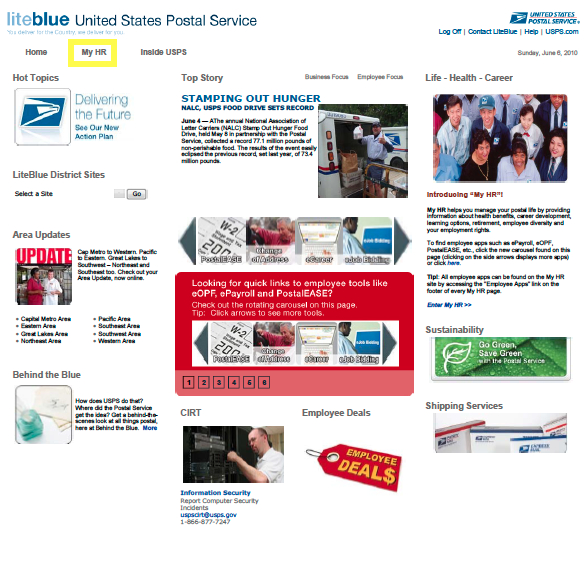What to Do One Year Before Retirement
First, you should visit your agency’s human resources department and let them know. This one-year advance discussion can help to avoid any problems or delays later on. HR will be able to start the process moving forward, e.g., by checking your eligibility and your accrued vacation and sick pay, as well as beginning to gather the benefit information you will need. You will also need to fill out forms regarding beneficiary information, final separation, and the like. Determine a one year timeline with HR concerning whatever actions need to be taken so that you can retire at the time you would like.
You should also meet with a qualified financial planner. A trusted financial planner will help you with your transition to retirement and will help ease any fears you may have about retirement finances. The financial planner can also go over your anticipated expenses and determine the best ways to reduce your costs, as well as help you devise a realistic budget going forward.
Important Considerations and Actions to Take
Along with your financial planner and your agency’s HR department, here are some important actions to take and issues you will need to deal with during your final year prior to retirement. You should consider involving your spouse, partner or other family members when reviewing these actions, as retirement is a significant change for the entire family.
Determine Your Retirement Expenses
It is very important that you consider how your lifestyle may change over the next 20-30 years. You may discover, when working on your retirement budget, that you could potentially spend more on entertainment, hobbies, travel, etc. Health care costs are likely to increase during mid and late retirement, and you may need to prepare for additional considerations, such as taking on financial responsibility for an elderly parent.
To get a clear understanding of what your retirement may actually cost, you will need to examine each of your expenses, small and large. (See related article on Retirement Cost Analysis).
Review Your Insurance Coverage
Just as you need to examine your financial priorities and responsibilities when it comes to retirement, so too do you need to examine your insurance needs. You will want to examine your auto, health, homeowners and life insurance policies to make sure your coverage is appropriate for your new lifestyle. Check with your agency’s HR department concerning your FEGLI and FEHB plans. Also discuss with your financial planner the use of your life insurance for estate planning purposes. (See related article on Estate Planning.)
When to Apply for Your Social Security Benefits
Three months before your 65th birthday or three months before you start collecting benefits you will need to apply for Social Security. You can apply at 61 years and 9 months of age, but benefit reductions may apply depending on your personal situation and your full retirement age, which is determined by your birth. (See related article on When to Apply for Social Security.)
Develop a Retirement Income Plan
Working with your financial planner, develop a retirement income plan that takes into account, among other things, your anticipated sources of income; your planned lifestyle; your life expectancy and that of your spouse or partner; how much you will need to withdraw from savings and investments each year; inflation and tax considerations; and the riskiness of your investments. If you anticipate a shortfall in income over expenses, try to cut expenses and consider working part time after you retire. (See related article on Are You Financially Ready to Retire?)
Choose Pension Benefits and Retirement Distribution Options
It is important to know which options are best for your retirement situation because some options may be final. Your decisions about what to do with your retirement plan assets can have important and long lasting financial implications. Consult your agency’s HR department concerning your FERS or CSRS annuity, FEHB, FEGLI, 401(k)s and other benefits. (Also see related articles on FERS and CSRS annuities, FEHB, FEGLI, TSP, Traditional and Roth 401(k)s and Retirement FAQs.)
Review Wills, Trusts, Powers of Attorney, and Beneficiaries
You should have a will. But did you know that a will on its own might not be enough to help reduce estate taxes and other costs or protect your assets? You should consider looking into setting up a trust. And take note that a “Power of Attorney” or a “Durable Power of Attorney for Health Care” are not the same; the former applies strictly to control of assets while the latter only provides for health care decisions.
To make sure that you and your beneficiaries are sufficiently protected, you will want to have your financial planner or attorney review the following documents: will, trust, beneficiary designations, investment plans and powers of attorney. (See related article on Estate Planning.)
Have Emergency Funds Available
Make sure that you have set aside sufficient funds for unexpected costs. Having emergency funds will ensure that you avoid using assets designated for income or growth purposes. We suggest having at least three to six months’ worth of expenses for your emergency fund. Developing your retirement budge will help you to determine what the right amount of emergency fund is for you.
There are always unexpected situations that may cause stress in your life, such as dental work, car repairs or a myriad of other unforeseen costs. When you have emergency funds set aside, you do not have to worry about how you’re going to pay for unanticipated events.
Put your emergency fund in a liquid, interest-bearing account. This will allow you to access it without penalties at a moment’s notice, and it will earn some return. As you use up your emergency fund, replace the funds so you are prepared for next unexpected event.







